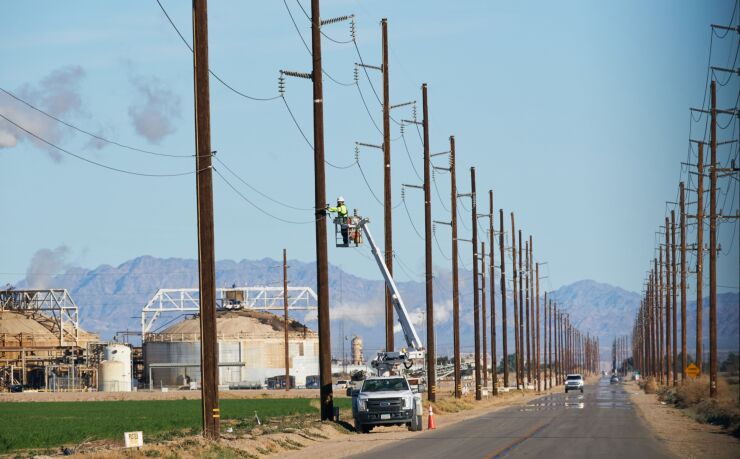Soaring inflation could pressure the credit ratings of public sector utilities if rising costs lead to rate hikes that spark customer and political opposition, S&P Global Ratings said.
The Consumer Price Index jumped 7.5% in the 12 months through January - the
The rating agency said in a report Thursday that it continues to monitor “the effects of inflation to identify utilities whose ratings could be vulnerable to the prevailing inflationary environment.”

Most of the utilities rated by S&P can autonomously adjust how much customers must pay, which is a key positive credit factor that helps to preserve “sound financial margins,” according to the report.
But S&P warned that inflation-spurred utility retail rate hikes at the same time consumers are struggling with other cost increases can build resistance.
“When utilities face opposition to rate increases needed to address rising costs, such barriers can erode financial performance and translate into negative rating actions if they weaken key financial credit metrics,” the report said, adding that rate hikes that outpace wage growth “could increase social risks from an ESG perspective and adversely influence credit ratings.”
David Bodek, a S&P analyst, said ratepayer resistance could preclude or dilute needed rate hikes.
“Consumers might see their utility bills as a place where they can exert some influence on their elected or politically appointed officials to try to hold the line,” he said.
Wholesale electricity prices were up last year as natural gas, which fuels many power plants, rose to an estimated $5.04 per million British Thermal Units in 2021’s fourth quarter from $3.19/MMBtu in January 2021, according to the U.S. Energy Information Administration.
While many utilities
Additional cost pressures include capital expenses related to aging infrastructure, growing demand,
S&P’s has a median rating of AA-minus for water and sewer utilities and A-plus for public power electric utilities.





